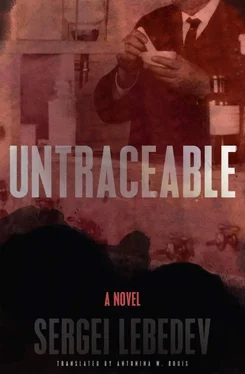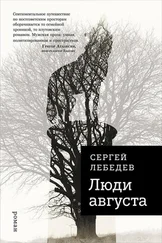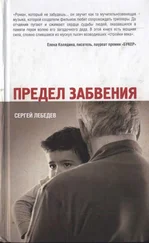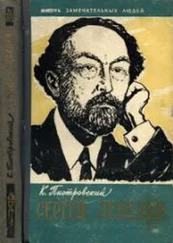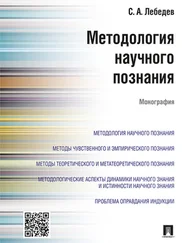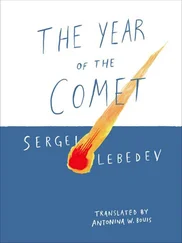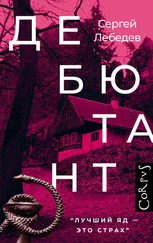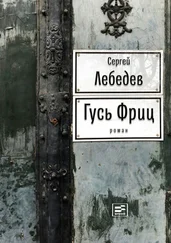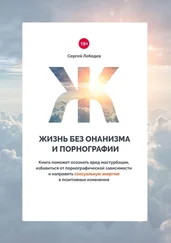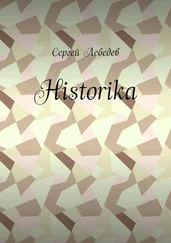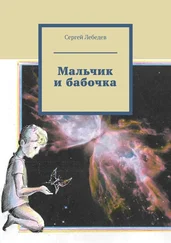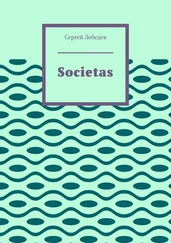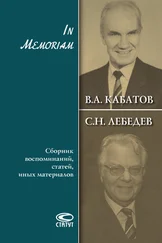Сергей Лебедев - Untraceable
Здесь есть возможность читать онлайн «Сергей Лебедев - Untraceable» весь текст электронной книги совершенно бесплатно (целиком полную версию без сокращений). В некоторых случаях можно слушать аудио, скачать через торрент в формате fb2 и присутствует краткое содержание. Город: New York, Год выпуска: 2021, ISBN: 2021, Издательство: New Vessel Press, Жанр: Современная проза, на английском языке. Описание произведения, (предисловие) а так же отзывы посетителей доступны на портале библиотеки ЛибКат.
- Название:Untraceable
- Автор:
- Издательство:New Vessel Press
- Жанр:
- Год:2021
- Город:New York
- ISBN:978-1-939931-90-0
- Рейтинг книги:3 / 5. Голосов: 1
-
Избранное:Добавить в избранное
- Отзывы:
-
Ваша оценка:
- 60
- 1
- 2
- 3
- 4
- 5
Untraceable: краткое содержание, описание и аннотация
Предлагаем к чтению аннотацию, описание, краткое содержание или предисловие (зависит от того, что написал сам автор книги «Untraceable»). Если вы не нашли необходимую информацию о книге — напишите в комментариях, мы постараемся отыскать её.
Untraceable — читать онлайн бесплатно полную книгу (весь текст) целиком
Ниже представлен текст книги, разбитый по страницам. Система сохранения места последней прочитанной страницы, позволяет с удобством читать онлайн бесплатно книгу «Untraceable», без необходимости каждый раз заново искать на чём Вы остановились. Поставьте закладку, и сможете в любой момент перейти на страницу, на которой закончили чтение.
Интервал:
Закладка:
A cap on the shelf. Belt. A pair of boots.
A different Uncle Igor. The true one. Who had the right to a special life.
The boy had never seen such precious things up close. He ran his fingers over the gold, silver, and ruby scales, cold and heavy. The mirror on the inside of the door reflected a face made strange by confusion.
The uniform, hung with medals that seemed an integral part of it, radiated pure, absolute power. The boy could not control himself. He didn’t think about being caught, punished, banished from Uncle Igor’s house. He so wanted to commune with that power, feel himself inside it, that he took the uniform off the hanger and with an unexpected, agile move, as if stolen from the owner, slipped his arms into the sleeves.
His shoulders bent under the weight. You had to stand under the uniform as if under barbells at the gym. But the weight was inexpressibly pleasant, it both burdened and protected, it clad you in its thin silk lining.
The boy stood and did not recognize himself, as if he had put on not someone else’s clothing but someone else’s features and character. The embossed symbols he had internalized in childhood made him part of something immeasurably bigger, as vast as the starry sky.
He took a step toward the mirror. Blinded by the dazzling sparkle, he noticed the military emblems on the lapels almost accidentally.
Not tanks.
Not propellers.
Not crisscrossed artillery barrels.
Bowl and snake.
A golden bowl with a snake wrapped around it, its head raised as if to take a sip or to protect the forbidden vessel.
He had never seen an emblem like that. He didn’t know what it meant.
In the midst of stars, sickles, hammers, and bayonets, the weapons of war and the weapons of labor welded into one, he thought, by the history of his country and therefore embossed on medals, the bowl and snake came from another, most ancient world when man was just beginning to name constellations. The boy suddenly understood that this inconspicuous and obscure symbol was the key; hidden, secret, it explained the orders, the general’s rank, Uncle Igor’s scientific path, combined it all into the secret of exclusivity, power, and strength.
The boy carefully took off the uniform and hung it back in the closet, leaving a corner of the sleeve sticking out between the doors. The obsession did not go away. Blessed heaviness. Complete protection.
He had found his idol. His path to becoming like Uncle Igor.
The bowl and snake.
Four years later the boy was the top student in chemistry. They were starting the last year of school. His father said that they would go see Uncle Igor to talk about the future. The boy guessed that his father, his kind father, milksop as his mother called him when she was angry, did not want him to repeat his path as the eternal number two, the reserve. His mother certainly did not want him to become a copy of her husband. They were prepared to give him to someone who knew how to forge destinies, change them for the better, higher, unattainable. The boy felt both rejection and joy. Their sacrifice was sweet to him. He knew now that the bowl and snake, the emblem of military medics, was just camouflage on Uncle Igor’s uniform. He was not a physician. He did not invent medicines. Much in their City was not what it seemed, and as he grew up, the boy accepted it without embarrassment, with a readiness that surprised his parents.
He had expected a thorough interrogation and he was prepared to display his knowledge. But Uncle Igor asked a dozen rather simple questions, nodded, and said, “Fine, all right.”
The boy felt Uncle Igor studying him. Looking at him absently, indifferently, weighing things that the boy did not know and could not imagine.
As they said good-bye in the hallways, Uncle Igor said casually, “I’ll write a recommendation to the special faculty. But on one condition. Have him come tomorrow morning to the third entrance. I’ll write a pass.”
The parents and the boy were stunned.
The Institute’s third entrance!
There were only three. Everyone in the City knew them.
The First had the wide gates for vehicles and battered turnstiles for the workers. There was a line of people waiting for passes, someone trying to use the hard-to-hear internal telephone. Documents were checked by fat-bellied paramilitary guards, revolvers in scuffed holsters, and it was all redolent of boredom, sweat, and cabbage soup from the canteen.
His father went through the Second entrance to go to work. Heavy billowing blinds covered the Institute’s glass vestibule, and it was only when the doors opened for an instant that you could see the gray marble lobby and the guards in gray suit jackets. The cardboard passes accepted at the First were not valid here. They had to be like his father’s: with a photograph and in a dark leatherette case.
The Third… The Third was a metal door with a bell. A door in the brick end of the building without windows. Somehow everyone knew that it led to the same place as the other two: into the inner perimeter of the Institute, a city in the City. No parking was allowed opposite the Third, a traffic officer came over instantly. No buildings over two stories could be built next to it.
But no one knew to whom the Third entrance belonged, who met visitors at the door. The ones who did know didn’t talk.
“The Second,” his father either asked or corrected.
“No. The Third,” Uncle Igor replied with a gentle smile. “At eleven.”
The boy felt that answer cut the ties that connected him to his parents. His father had not been past the door of the Third. He couldn’t dream of being there. But he would be.
Tomorrow.
At eleven.
In the morning, his father gave him his watch. The boy wanted the whole world to know where he was going. But there weren’t many pedestrians, and the street was completely empty by the Third entrance. If only someone would look out a window or out of the passing bus!
The second hand made him hurry. The boy put his finger on the bell. Pressed. The button was rigid and immobile. Silence. Suddenly he imagined that he could still turn around and go; back to his mother and father, to his previous life. He looked around. A dusty street. A tall tramp in a dirty, black padded jacket stopped on the corner and was looking at him; where did he come from, this was the City, there were no tramps here! The boy pushed the bell as hard as he could. A harsh ring like an alarm sounded inside.
A grumpy and surprised ensign took his new passport and copied his name. He moved a yellow notebook with curling edges toward him: Sign in. He called on the phone, dialing two numbers: 2-8.
Another ensign came and said, Follow me. He had the bowl and snake in his buttonhole. The boy’s heart pounded at the discreet proximity of the secret. Hallway. A door padded with oilcloth. A narrow passage through the courtyard with a brick wall; whining behind it. Could it be dogs? The next door. Worn linoleum on the floor. The smell of a classroom not cleaned after vacation. Windows with a view of high brick walls. A labyrinth. He felt a chill. He was lost in space, he could no longer figure out where the street was.
A safe door. A big empty room. Marks on the wallpaper showed where shelves had been. The boy was confused and depressed. Where was the equipment, where was the laboratory, where was the secret?
Uncle Igor in a plain blue lab coat came through the door opposite. Yet another different Uncle Igor. He beckoned with two fingers: Follow me. A long, dark, dusty corridor brought them to the dressing room with wide metal lockers for clothing and to one side, a shower room, the showerheads the size of sunflowers.
“Once, we used to change here,” Uncle Igor said. “The clean zone begins from here. Now this place no longer exists. On paper this wing has been razed to build a new one. But the builders are late. This place does not exist, understand? That’s why I could bring you here.”
Читать дальшеИнтервал:
Закладка:
Похожие книги на «Untraceable»
Представляем Вашему вниманию похожие книги на «Untraceable» списком для выбора. Мы отобрали схожую по названию и смыслу литературу в надежде предоставить читателям больше вариантов отыскать новые, интересные, ещё непрочитанные произведения.
Обсуждение, отзывы о книге «Untraceable» и просто собственные мнения читателей. Оставьте ваши комментарии, напишите, что Вы думаете о произведении, его смысле или главных героях. Укажите что конкретно понравилось, а что нет, и почему Вы так считаете.
